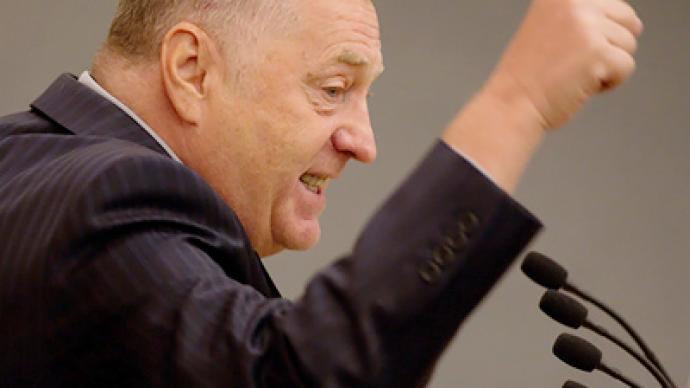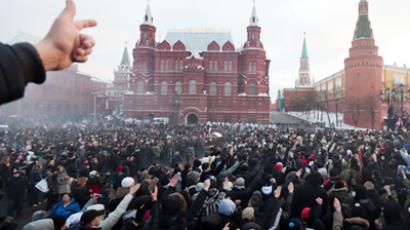Chechnya accuses State Duma deputy speaker of inciting “interethnic hatred”

Sharp statements by the leader of the Liberal Democratic Party, Vladimir Zhirinovsky, in defense of ethnic Russians have sparked a fierce reaction in the North Caucasus.
Zhirinovsky has found himself at the center of a scandal after the authorities in Chechnya and Dagestan accused him of “inciting interethnic hatred.” Speaking during the Poedinok program on Russia 1 TV channel, he said ethnic Russians, accounting for 80 per cent of the country’s population, should be protected in their own country.In the program broadcast last week, he also said that the people in the North Caucasus pay less tax and get more subsidies from the federal center than other Russian regions. Zhirinovsky explained he did not mean to offend anyone in Chechnya, adding, “I was speaking about the Russian people”. He told Komsomolskaya Pravda newspaper, “My position was about the need to protect ethnic Russian people.”There are no anti-Tatar or anti-Bashkir sentiments in Russia, Zhirinovskty said during the program, referring to the Muslim peoples having national republics in central Russia. “The only problem is between Moscow and the North Caucasus,” he added. And not the whole Caucasus, but only three republics: Dagestan, Chechnya and Ingushetia.The authorities in Chechnya and Dagestan over the weekend condemned Zhirinovsky’s statements. The head of Chechnya, Ramzan Kadyrov, said he did not know why Zhirinovsky “was allowed to make chauvinistic statements provoking interethnic hatred.” These words could “spark chaos in the country, wars between ethnic groups and faiths,” he said on his official website.Kadyrov said he was waiting for an appropriate reaction from the State Duma and expressed hope that the LDPR would change the party’s leadership. Kadyrov also recommended members of the LDPR’s regional branch quit the party.“Neither Zhirinosky nor anyone else will be allowed to weaken or even to disintegrate our Fatherland – Russia,” Kadyrov said. “We will not let anyone play off the Russian people against others,”he stressed. According to him, ethnic Russians are “the core of the multinational Russian people and its main might.”The head of Chechnya called on the State Duma to assess Zhinrinovsky’s “provocation.” And the LDPR should think about changing its leader “if it wants to remain one of the parliamentary parties,” he said. Meanwhile, the Chechen parliament went even further by asking the State Duma to release Zhirinovsky from his duties as deputy speaker and adopt legislation banning the LDPR from political activities.The department of information policy of the Republic of Dagestan described as “lies” the common views attributed to nationalists that “Caucasian people cannot and do not want to work, they do not study and have seized everything.” Zhirinovsky, however, does not agree with his critics from Chechnya and Dagestan. His words were not in the least similar to the incitement of interethnic hatred, the politician told Ekho Moskvy radio. Thus, he was not going to apologize, he added. According to him, participants of the Poedinok program did not discuss any topics related to Chechnya or Dagestan. All his statements only concerned Russians, he insists.The LDPR leader also said he did not want to argue with the Chechen leadership, which, in his words, has “its own view on all issues.” Zhirinovsky also suggested that the leaderships of the North Caucasus republics should thoroughly watch the program. He also said there was no confirmed information about LDPR members in Chechnya leaving the party.Observers believe it would be practically impossible to deprive Zhirinovsky of the seat in parliament. “Raising his voice against the influential Chechen leader,” Zhirinovsky will only gain popularity among the nationalistically-minded electorate, Aleksey Malashenko of the Carnegie Moscow Center told Kommersant daily. Thus, in the year of parliamentary election, the LDPR will be able to compensate lost votes in the North Caucasus, where the party has never been popular.














